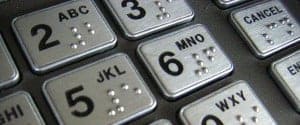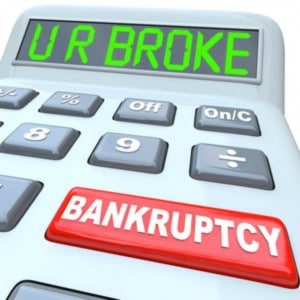 In many instances, marriage vows would be more accurate if the phrase were changed to “Until debt do us part”.
In many instances, marriage vows would be more accurate if the phrase were changed to “Until debt do us part”.
Sam Ewing
Joint accounts: Introduction
Sharing with your spouse is great, but not your PIN number or joint accounts. Some couples like to share everything in a marriage, but too much sharing, especially as it pertains to finances is not necessarily a good thing. We’re not saying that discussing finances is a bad idea; in fact it’s a great idea! But, sharing your PIN number is not recommended, and for good reason.
Joint accounts: Mixed feelings
Laurie Campbell, executive director of Credit Canada which deals with people with credit problems, says she has mixed feelings about people joining up their lives financially. “We see so much in here,” said Ms. Campbell. “You have to know what you are signing up for. We all go into these relationships with the best intentions thinking everything will be rosy. Unfortunately, it’s not the reality. What credit counsellors do is speak with couples who come to us, many of whom can’t even sit in the same room because of the damage they have done to each other’s credit. When involving joint accounts, the financially responsible spouse ends up paying for the financial sins of the other. If you have one person who is a saver and the other person is a spender, you’re in trouble,” said Ms. Campbell.
Joint accounts: Money can be the primary cause of divorce
The cause of about 1 in 5 of all Canadian divorces is primarily by money. Financial incompatibility was and still is a serious issue. According to a Harris Interactive poll recently released:
- A third of American couples with joint finances say they have committed financial infidelity, with both sexes lying to their partners in equal numbers.
- 67% of those couples had arguments as a result.
- 42% said it caused less trust in the relationship.
- 16% of cases, the lying led to divorce; in 11% it caused a separation.
Joint accounts: Joint accounts does not equal a joint financial plan
In spite of advice to the contrary, a survey from the Chartered Professional Accountants found 69% of spouses or partners have shared their PIN. Yet a recent poll from TD Canada Trust found that only 36% of couples have a joint financial plan. For some couples a PIN number is symbolic of sharing in the relationship and for others it’s just convenient, but clearly it can be a recipe for financial disaster. Think twice before sharing your PIN number with anyone and that includes your spouse. The same is also true for co-signing a loan and using joint accounts not providing equal benefit to each spouse.
Joint accounts: What to do if you are facing serious debt issues
If you’re facing serious debt issues, contact Ira Smith Trustee & Receiver Inc. today. We’re not marriage counsellors, but we are credit counsellors. In addition to credit counselling we offer other bankruptcy alternatives such as, debt consolidation and consumer proposals as well as bankruptcy. Take the first step towards a debt free life, Starting Over, Starting Now.

